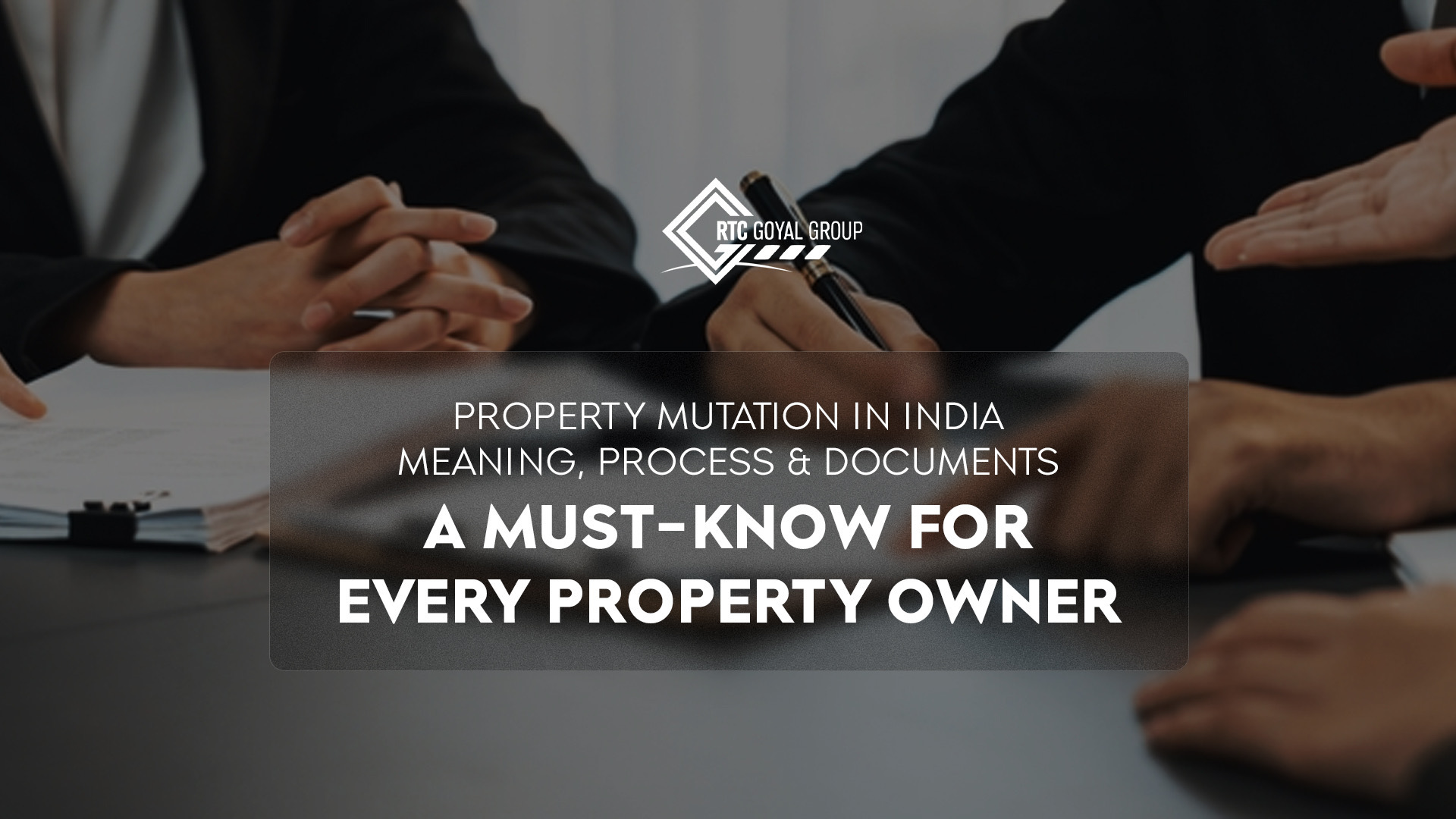
Property Mutation in India: Meaning, Process & Documents – A Must-Know for Every Property Owner
When you buy a property — whether commercial or residential — the journey doesn’t end at registration. A crucial yet often overlooked step follows: property mutation.
At RTC Silver, we help you go beyond just buying the right space. We ensure you understand and secure your legal rights — and mutation is a vital part of that process.
What is Mutation of Property?
Mutation of property is the process of updating ownership details in municipal and land revenue records after the purchase, inheritance, or transfer of property.
While property registration establishes legal ownership under law, mutation reflects that ownership in the government’s revenue and tax records — making you the rightful taxpayer and recognized owner in local civic records.
Why Is Property Mutation Important?
Mutation is not just an administrative formality — it serves several critical purposes:
- Legally registers your ownership in government and municipal records
- Ensures property tax bills are issued in your name
- Required for building permissions, resale, or transfer of property
- Prevents ownership disputes, especially in inherited or ancestral assets
- Acts as evidence of ownership in government records
Whether you’ve purchased a commercial unit in Kharadi or inherited a residential plot, mutation makes your ownership official in the eyes of local authorities.
Property Mutation vs. Registration: What’s the Difference?
Property Registration
Legal transfer of ownership
Done at sub-registrar office
One-time process
Provides Sale Deed
Property Mutation
Updates records in municipal books
Done at municipal/revenue office
May need updating upon future transfers
Provides Mutation Certificate
In short: Registration gives you the title, but mutation gives you local recognition and tax accountability.

When Is Property Mutation Required?
- After buying a residential or commercial property
- After inheriting a property from parents or relatives
- Upon receiving property as a gift or through a will
- After a court decree in property-related matters

Types of Property Mutation
There are various scenarios where mutation applies:
- Mutation After Sale/Purchase – Required every time a property changes hands.
- Mutation of Inherited Property – Needed when the property is passed on through succession or legal heirship.
- Mutation After a Gift/Will – Ensures recognition of transfer via non-sale means
- Mutation Due to Court Order – For properties transferred following a legal dispute or divorce settlement.
Documents Required for Property Mutation
While the list may vary slightly depending on the state or municipality, these are generally required:
- Copy of Sale Deed / Title Deed
- Latest Property Tax Receipts
- Mutation Application Form
- Valid ID & Address Proof
- Death Certificate (if applicable)
- Legal Heir/Succession Certificate (if inherited)
- Affidavit declaring mutation intent (on stamp paper)
We always advise buyers to verify with their local municipal body for updated requirements.
Offline Process:
- Visit the local municipal/revenue office
- Collect and fill out the mutation application form
- Attach required documents and submit
- Pay the nominal mutation fee
- A local officer may verify the property
- Upon approval, you’ll receive a Mutation Certificate
Online Process (Where Available):
- Visit your state/municipal corporation website
- Register or log in
- Fill the online mutation form
- Upload digital copies of the documents
- Pay fees online
- Track your application via acknowledgment number
Common Mistakes to Avoid
- Submitting incomplete or mismatched documents
- Not following up on application status
- Assuming mutation happens automatically after registration
- Not collecting your mutation certificate post-approval
Avoid these pitfalls to ensure smooth property ownership recognition.
What Happens If You Skip Mutation?
Failing to mutate your property can lead to:
- Inability to sell or transfer property in the future
- Disqualification from certain loans or approvals
- Property tax notices being sent to the previous owner
- Legal complications in case of disputes or claims
Whether you’re purchasing a modern office space in Wagholi or a premium residence near Pune Metro, mutation is a key legal checkpoint in your property journey.
At RTC Goyal Group, our expert team helps you make informed real estate decisions — from strategic property investments to legal ownership processes like mutation and registration.
Want expert guidance on legal due diligence for your next residential or commercial purchase?
Contact RTC Goyal Group – where ownership meets peace of mind.
